
A group of 25 enthusiastic mid-career women professionals from the Indian power sector called on the Union Minister for Power and New & Renewable Energy Shri R. K. Singh in New Delhi on February 15, 2024. The women had come as part of WePOWER SAR100, a series of trainings for 100 women professionals from Southeast Asian Region in the energy sector. Out of the 100 women, 25 are from Bangladesh, 15 from Sri Lanka, 15 from Pakistan, 10 from Maldives and 32 are from various parts of India, most of them working in central or state government power sector PSUs, regulatory commissions or energy departments. Secretary, Ministry of Power, Shri Pankaj Agarwal; Director General, National Power Training Institute, Dr. Tripta Thakur; Principal Director, NPTI, Dr. Manju Mom; WePower World Bank Partnership Coordinator, Ms. Tanushree Bhowmik; and CMDs of power sector PSUs were present on the occasion.
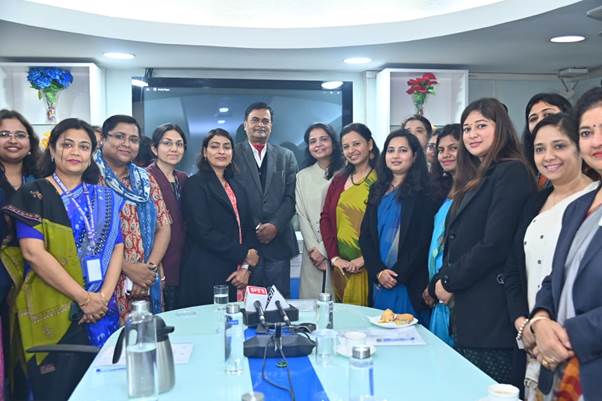
Sharing their experiences from the programme, the 25 women ambassadors of India’s power sector told the Power and New & Renewable Energy Minister that WePOWER SAR100 gave them global exposure to the power sector, introducing them to technologies such as vertical solar panels, compressed-air energy storage and ocean-based solar arrays. The trainees said that the programme also enabled them to learn some of the best practices being adopted in the power sector in various countries and also come to a better realization of their own latent potential. The Minister complimented the women professionals and observed that the interaction with them shows that the programme has been a success.
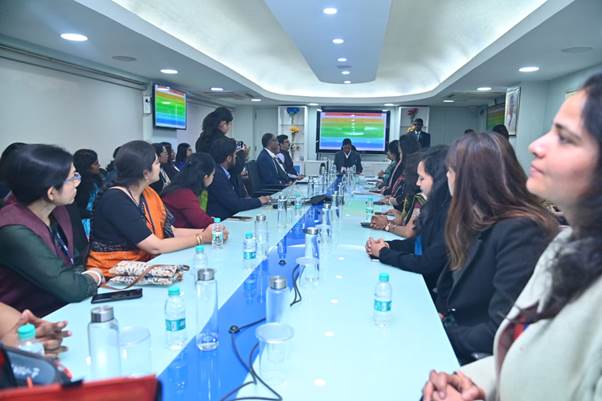
“We need more women coming out and doing engineering”
Addressing the women professionals, the Power Minister observed that while we have more women coming forward now, we need more women coming out and doing engineering.
“Set your ambitions high, you must aim to become CMDs or Directors one day”
Shri Singh encouraged the lady professionals to set their ambitions high. “I tend to see the workplace not in gender terms, but in terms of ability; if you have ability, you will rise up to the top. The course has given you exposure to what is happening in other countries. Now, you need to set your ambitions high. Your objective must be to become CMD or Director one day, that is the change which needs to come. It is happening, but you need to set your sights higher.”
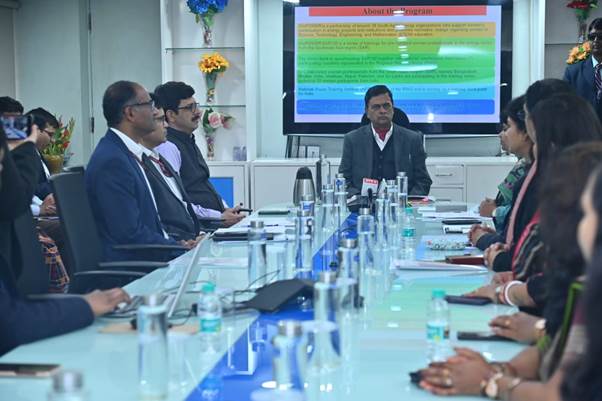
Speaking about the sector, the Minister said that the power sector is very exciting and fast-evolving, the old sector giving way to a new one. “The sector will change, with more individual generation, more renewable energy, less fossil fuels and different forms of energy storage. We see consumers becoming prosumers. If nuclear becomes safer and cheaper, then that might become the predominant form of energy. If fusion becomes successful, then we will have a vast storehouse of energy, which could bring down energy costs further.”
The Minister said that despite individual generation, transmission will remain, which would be necessary for bulk consumption in industrial and commercial sectors.
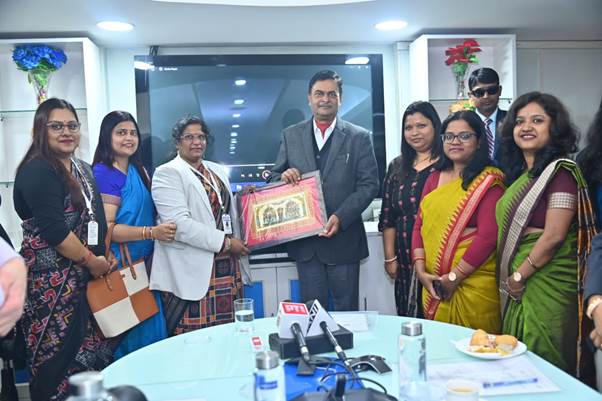
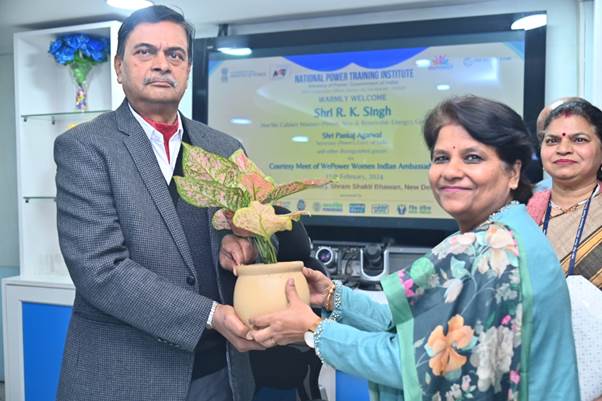
Union Power Secretary Shri Pankaj Agarwal complimented the women professionals and said that a training programme of this kind is very important in career growth. The Secretary hoped that this initiative gets institutionalized to benefit not just professionals in the public sector but across the entire power sector.
The 32 women professionals from different states of the country arrived at the National Power Training Institute (NPTI) Corporate Office in Faridabad on a two-day visit during February 15 – 16, 2024. The participants visited the 800 MW Thermal Power Plant Simulator and CCGT Simulator at NPTI Faridabad, where they learned about the control and operation of thermal power plants. They will also visit the National Institute of Solar Energy (NISE), Gurugram and the National Load Despatch Centre, New Delhi. NPTI, in its capacity as a Regional Working Group (RWG) member of WePOWER from India, is hosting the 32 women professionals from India’s power sector.
Addressing the women participants, Dr. Tripta Thakur, Director General of NPTI, described them as living examples of women empowerment and said that there were days when women used to stay away from technical fields such as the power sector, but that women are stepping into every field today.
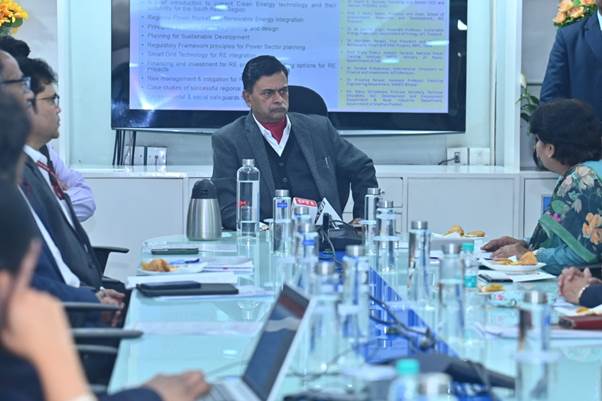
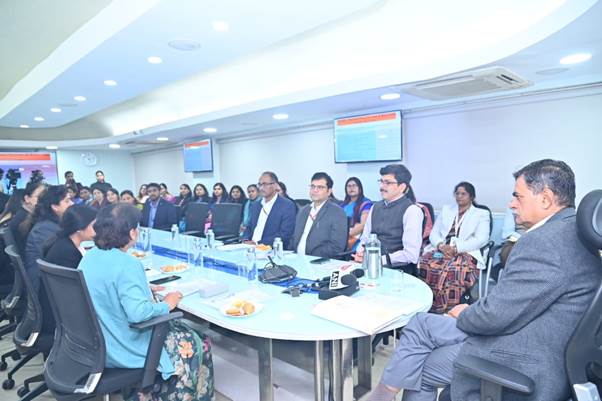
The World Bank is leading the SAR 100, together with national counterparts from seven countries represented in the Regional Working Group (RWG). National Power Training Institute (NPTI) is a part of RWG and is functioning as a national focal point for India. 100 mid-career women professionals from the South Asian Region (SAR), namely Bangladesh, Bhutan, India, Maldives, Nepal, Pakistan and Sri Lanka, are participating in this training series.
The objective of SAR-100 is to create a gender-diverse pool of experts for planning, developing, and operating regionally integrated grid, regional power systems, and power markets. The South Asian power sector’s transition to new and renewable technologies underscores the program’s significance. With a focus on regional integration, SAR-100 anticipates the creation of green jobs, necessitating new skills and training for the existing workforce. The topics include areas such as renewable energy integration, power markets, and soft skills like addressing gender bias and women in leadership. This training series comprised of 10 modules, which were delivered in online mode from July 2023. A one-week on-campus capstone event at Asian Institute of Technology during March 4 – 8, 2024 will conclude the program.
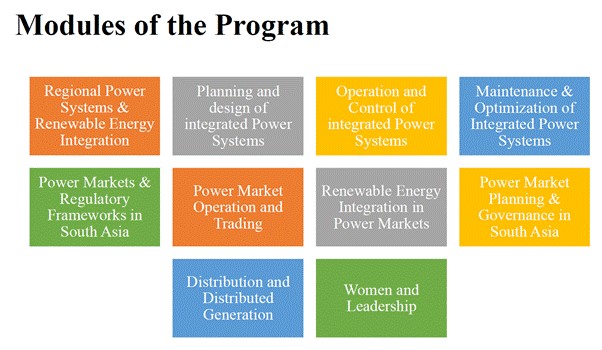
 WePower is a vibrant voluntary women’s professional network in the energy and power sector in South Asia that supports women’s participation in energy projects and institutions and promotes a change in norms regarding participation of women in science, technology, engineering and mathematics (STEM) education. WePower has a partnership of approximately 38 South Asian energy organisations.
WePower is a vibrant voluntary women’s professional network in the energy and power sector in South Asia that supports women’s participation in energy projects and institutions and promotes a change in norms regarding participation of women in science, technology, engineering and mathematics (STEM) education. WePower has a partnership of approximately 38 South Asian energy organisations.
***
PIB DELHI | Dheep Joy Mampilly

